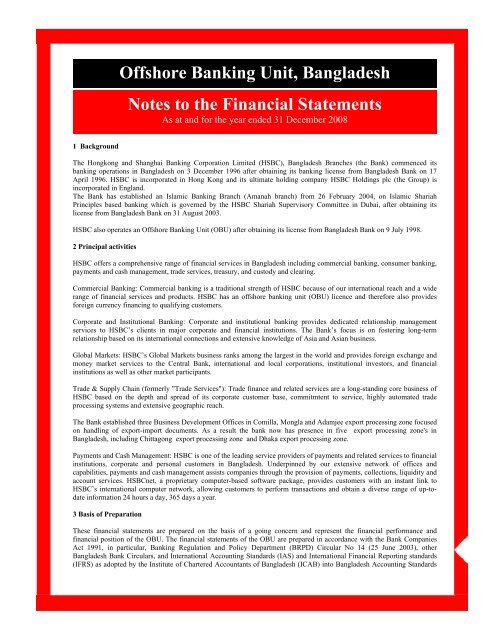Offshore Company Formation: Structure Your Company Past Borders
Offshore Company Formation: Structure Your Company Past Borders
Blog Article
Understanding the Lawful Implications of Offshore Business Development

Lawful Structure for Offshore Firms
When establishing an offshore business, recognizing the legal framework regulating its development and procedure is essential for compliance and danger management. Offshore firms operate under certain regulations and regulations that vary from those of onshore entities. The lawful framework for offshore companies normally consists of provisions for company registration, investor requirements, director obligations, and tax obligations.
Business registration includes submitting the required paperwork to the suitable regulatory authorities in the selected jurisdiction. This process frequently requires comprehensive information regarding the firm's structure, investors, and intended activities. Furthermore, overseas firms have to abide by specific investor demands, such as keeping a register of investors and keeping this details as much as date.
Supervisors of overseas companies have fiduciary responsibilities to act in the most effective rate of interests of the company and its shareholders. They are accountable for overseeing the company's procedures, making sure conformity with all relevant legislations, and managing threats efficiently. Understanding the tax obligation responsibilities of an overseas company is vital to prevent any type of potential legal issues. By adhering to the lawful framework controling offshore firms, businesses can operate with confidence while lessening lawful dangers.


Tax Obligation Ramifications and Laws
Recognizing the tax obligation implications and laws is vital when considering the facility and operation of an offshore firm. Tax obligations play an essential duty in the decision-making process of whether to set up an offshore entity. Offshore firms are often based on beneficial tax programs, supplying lowered or absolutely no tax prices on foreign-earned income. It is crucial to navigate these tax benefits very carefully to make sure compliance with both the regulations of the overseas territory and the home nation.
Tax obligation guidelines for overseas business vary significantly throughout territories, and it is essential to look for expert guidance to recognize the specific requirements and commitments. Failure to conform with tax laws can lead to severe repercussions, including large penalties, reputational damages, and also lawsuit. Furthermore, offshore jurisdictions may have reporting commitments to divulge monetary information to appropriate authorities. Therefore, complete knowledge of tax regulations and laws, in addition to appropriate tax obligation planning, are necessary to make certain the successful and compliant operation of an offshore company.
Compliance Needs and Reporting
Ensuring compliance with governing requirements and preserving precise coverage are crucial aspects of handling an offshore company successfully and transparently. Offshore companies must stick to the legislations and laws of both the jurisdiction in which they are incorporated and any other pertinent jurisdictions where they perform service. Conformity demands typically consist of filing yearly returns, financial declarations, and tax obligation records with the ideal authorities. Failure to meet these obligations can result in charges, fines, or also the cancellation of the company's enrollment.
Along with regulatory conformity, overseas firms are usually based on reporting requirements to ensure transparency and protect against unlawful tasks such as money laundering or tax obligation evasion. Coverage commitments may entail revealing info concerning the company's possession structure, financial tasks, and beneficiaries. This details might require to be shown regulative bodies, tax authorities, or various other governmental agencies, depending upon the jurisdiction.
Preserving accurate and comprehensive documents is crucial for web link demonstrating conformity and responding to any type of queries or audits efficiently. Offshore business ought to carry out robust reporting devices and internal controls to guarantee that they satisfy all legal demands and run with honesty.
Asset Defense and Privacy Rules
In the world of offshore business formation, a critical factor to consider is the interplay in between possession defense methods and personal privacy regulations. Offshore jurisdictions frequently supply boosted possession defense mechanisms that shield properties from prospective threats such as lawsuits, creditors, or political instability in the home nation. By structuring properties within an overseas firm, people can secure their wealth and diversify their holdings across various lawful structures. Privacy regulations in overseas jurisdictions contribute to maintaining privacy and anonymity for company proprietors. These laws limit the disclosure of delicate details, making it testing for exterior events to access details about the business's procedures or possession structure. This degree of personal privacy can be beneficial for individuals seeking to secure their properties from public scrutiny or competitors. It is vital for individuals to navigate these legislations ethically and transparently, making sure compliance with both offshore laws and the lawful requirements of click site their home nation. Ultimately, understanding the elaborate relationship in between possession protection strategies and privacy legislations is extremely important when considering overseas firm formation.
Difficulties and threats to Consider
When venturing into overseas company formation, sensible consideration of possible threats and difficulties is crucial for notified decision-making and critical preparation. Furthermore, political instability or adjustments in overseas jurisdictions can position a threat to the connection of operations and the defense of assets held by the overseas company.
Obstacles may additionally emerge concerning the complexity of offshore firm frameworks and the need for experienced legal and economic suggestions to browse the detailed regulative frameworks of various jurisdictions (offshore company formation). Maintaining conformity with varying global laws and regulations, along with potential language obstacles and social differences, can even more complicate the offshore business formation process. It is right here critical to be knowledgeable about these dangers and obstacles before proceeding with offshore company formation to minimize prospective pitfalls and ensure a lawfully audio and smooth facility
Verdict
To conclude, offshore firm development involves navigating complex legal frameworks, tax implications, conformity demands, and privacy laws. Recognizing these facets is essential for minimizing threats and difficulties linked with offshore organization procedures. It is vital for individuals and businesses considering offshore business formation to seek expert support to guarantee conformity with policies and to shield their properties properly.
The legal framework for offshore firms usually consists of arrangements for firm registration, investor requirements, supervisor duties, and tax obligation obligations.
Directors of overseas firms have fiduciary obligations to act in the finest interests of the business and its shareholders. By adhering to the lawful structure governing overseas companies, services can operate with self-confidence while decreasing lawful risks.
Furthermore, political instability or changes in overseas territories can posture a threat to the continuity of procedures and the defense of properties held by the offshore business. - offshore company formation
In final thought, overseas business development involves browsing intricate lawful frameworks, tax ramifications, conformity needs, and privacy regulations.
Report this page